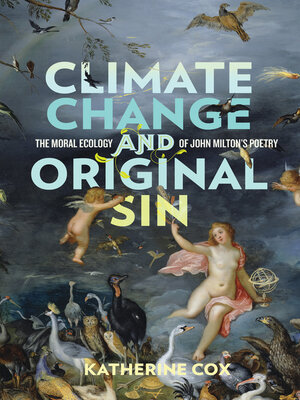Climate Change and Original Sin
ebook ∣ The Moral Ecology of John Milton's Poetry · Under the Sign of Nature
By Katherine Cox

Sign up to save your library
With an OverDrive account, you can save your favorite libraries for at-a-glance information about availability. Find out more about OverDrive accounts.
Find this title in Libby, the library reading app by OverDrive.



Search for a digital library with this title
Title found at these libraries:
| Library Name | Distance |
|---|---|
| Loading... |
Prior to the Enlightenment era, how was the human-climate relationship conceived? Focusing on the most recent epoch in which belief in an animate environment still widely prevailed, Climate Change and Original Sin argues that an ecologically inflected moral system assumed that humanity bore responsibility for climate corruption and volatility.
The environmental problem initiated by original sin is not only that humans alienated themselves from nature but also that satanic powers invaded the world and corrupted its elements—particularly the air. Milton shared with contemporaries the widespread view that storms and earthquakes represented the work of fearsome spiritual agents licensed to inflict misery on humans as penalty for sin. Katherine Cox's work discerns in Paradise Lost an ecological fall distinct from, yet concurrent with, the human fall. In examining Milton's evolving representations of the climate, this book also traces the gradual development of ideas about the atmosphere during the seventeenth century—a change in the intellectual climate driven by experimental activity and heralding an ecologically devastating shift in Western attitudes toward the air.







